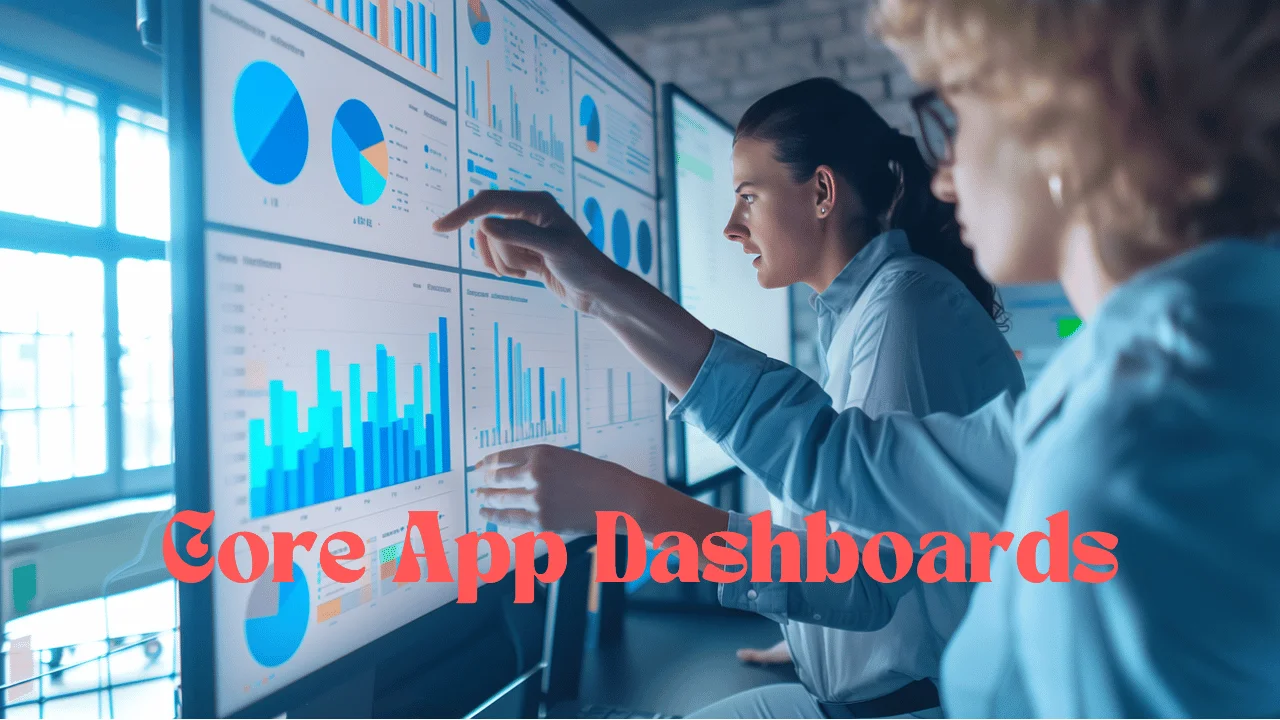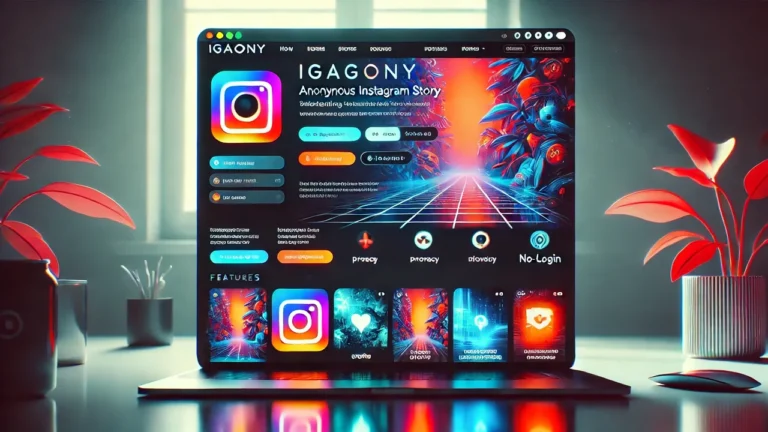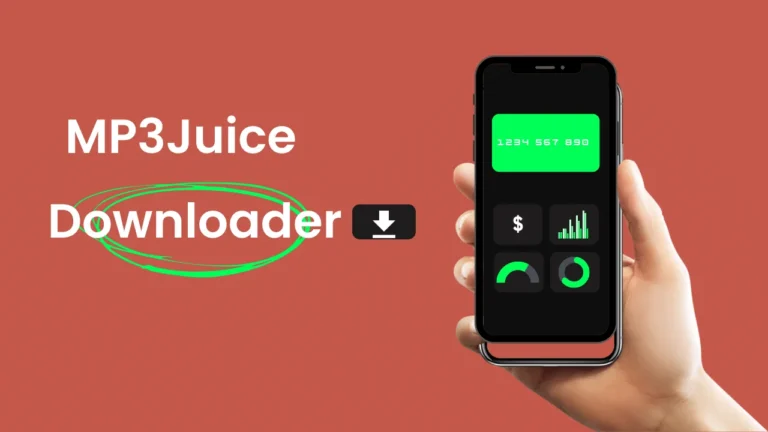Core App Dashboards: A Comprehensive Guide

Introduction
A core app dashboards is an essential component in modern application management, enabling users to visualize, monitor, and manage everything from user activities to system health seamlessly. These dashboards, which aim to improve operational efficiency, are vital for keeping app performance high and user happiness guaranteed.
Optimizing Core App Dashboards for Maximum Efficiency
Real-Time Analytics and System Health
Efficient core app dashboards integrate real-time analytics that provide immediate insights into application performance, making it easier to identify and rectify issues swiftly. Administrators can actively monitor system health data to prevent downtimes and maintain consistent application reliability.
Predictive Analytics and Machine Learning
Dashboards are able to foresee issues using machine learning and predictive analytics, allowing them to alter system performance in advance. Taking a proactive stance in monitoring operations helps keep things running smoothly and improves the user experience.
Customization and User-Specific Interfaces
Dashboards for core apps are very customisable. Developers and system administrators alike can take advantage of the interface’s interactive customisation options to make it work for them. This makes sure that everyone can get the information they need fast and easily.
Must-Have Features of an Effective Core App Dashboard
Comprehensive Data Visualization
The ability to visualise operational information is an essential feature of any core app dashboard. These resources facilitate improved analysis of trends and performance measures by presenting data in an easily digestible format, which in turn speeds up decision-making.
User Activity Tracking and Management
To comprehend how end-users engage with a programme, it is essential to record their actions. This knowledge is useful for making the programme run faster and better for users.
System Troubleshooting and Maintenance Tools
To ensure that any technological difficulties are resolved quickly, effective dashboards offer tools that aid in real-time system troubleshooting and maintenance.
Security Features
Ensuring the dashboard remains secure is of utmost importance. In order to prevent unauthorised access and risks to sensitive data, users anticipate strong security measures.
Benefits of Real-Time Analytics in Core App Dashboards
Real-time analytics in core app dashboards offer several advantages:
- Immediate Insights: Instant access to data allows for quick responses to performance issues or user feedback.
- Enhanced Performance Monitoring: Continuous monitoring helps in maintaining and improving application performance.
- Data-Driven Decisions: Real-time data supports strategic business decisions, providing a competitive edge.
Customizing Core App Dashboards for Various User Roles
Role-Based Access and Information Display
Dashboards should be adaptable, allowing for role-specific customization that caters to various user needs, enhancing productivity and ensuring that each user has access to the relevant information.
Interactive Elements
Adding interactive elements to the dashboard enhances user engagement and makes the management of applications more intuitive and efficient.
Challenges in Dashboard Management
Maintaining an effective core app dashboard involves several challenges:
- Scalability: As user base and data volume grow, the dashboard must efficiently scale to handle increased loads.
- Integration Complexity: Seamlessly integrating new tools or data sources can be complex.
- User Training and Adoption: Ensuring that all users are trained and comfortable with the dashboard is essential for its success.
Strategic Decision Making with Dashboards
Core app dashboards play a crucial role in strategic decision making by providing stakeholders with a clear view of business operations and performance trends. This data-driven approach supports better strategic planning and risk management.
Future Trends in Core App Dashboard Technology
Looking forward, we can anticipate several developments in core app dashboard technology:
- Increased Use of AI: Artificial intelligence will likely play a larger role in automated data analysis and decision-making processes.
- Greater Emphasis on User Experience: Enhancements in dashboard design will focus more on user experience, making these tools even more intuitive and easier to use.
- Integration of More Advanced Analytics: As businesses demand more complex insights, dashboards will integrate more advanced analytic capabilities.
By embracing these strategies and technologies, businesses can maximize the utility of their core app dashboards, ensuring they not only meet but exceed the expectations of their users.
Enhancing Operational Efficiency with Core App Dashboards
Streamlined Workflow Management
Dashboards in core apps are made to simplify workflow procedures so that users can handle jobs more effectively. Dashboards maximise efficiency by consolidating vital data and making a variety of tools easily accessible, thereby decreasing the amount of time spent navigating between apps.
Automated Reporting Capabilities
One notable aspect of good dashboards is automated reporting. These features make it possible for the programme to generate reports automatically using the data it collects. In addition to saving time, this function keeps reports current with the newest data, allowing for faster decision-making.
Resource Optimization
Monitoring resource utilisation and optimising allocation based on real-time data is essential for optimising resources through key app dashboards. In order to keep operations cost-effective and sustainable, this helps to minimise waste and make sure resources are used as efficiently as possible.
Integrating Machine Learning into Core App Dashboards
Predictive Maintenance
By sifting through trends in application performance data, machine learning algorithms may foresee when systems might crash. Reducing maintenance expenses and downtime, this predictive maintenance capabilities helps schedule repairs and maintenance at opportune periods.
Enhanced User Behavior Analysis
Machine learning allows dashboards to delve more deeply into user preferences and behaviours. With the use of this sophisticated analysis, the application can be fine-tuned to better suit the user’s requirements, leading to an improved user experience and more engagement.
Dynamic Adaptation to Changing Data
Dashboards may now respond instantly to shifting data patterns thanks to machine learning. Regardless of changes in data trends over time, the dashboard can adapt and continue to offer valuable insights because of its adaptability.
Dashboard for Strategic Business Decisions
Real-Time Data for Real-Time Decisions
It is essential in today’s fast-paced corporate world to be able to make well-informed decisions without wasting time. Decisions on the long-term course of the company can be swiftly and intelligently influenced by the real-time data made available by core app dashboards.
Insight into Market Trends
A thorough perspective of market trends can be obtained by aggregating data from numerous sources using dashboards. When it comes to strategic planning, this information is priceless since it allows companies to spot growth and competitive advantage chances.
Risk Management and Mitigation
Dashays help companies find risks faster and put mitigation plans in place by giving a summary of operational and market data. In order to keep the company running smoothly, this proactive risk management is essential.
Custom Dashboard Features for Enhanced Functionality
Widget Customization
With the use of custom widgets, users can design a dashboard that caters to their unique requirements and objectives. With this degree of personalisation, the user can better oversee and control the programme in accordance with their distinct duties.
Integration Capabilities
Integrating with other business tools and applications is a breeze with a powerful core app dashboard. By integrating all essential data sources, this feature guarantees that all important information is synchronised and presented in a coherent view.
Accessibility and Mobile Optimization
It is crucial to have a dashboard that is mobile-friendly in today’s mobile-first society. With dashays that are mobile-optimized, users can get to the data they need whenever they need it, on any device.
Must Visit: MyFlexBot: Transforming Industries through Smart Automation
Frequently Asked Questions
What metrics are essential on a core app dashboard?
Key metrics include user engagement, system performance, downtime incidents, and operational efficiency rates.
How can I ensure data security on my dashboard?
Implement robust authentication measures, use encryption, and regularly update security protocols.
What are the best practices for implementing a core app dashboard?
Focus on user needs, ensure scalable architecture, integrate effective visualizations, and maintain strong security standards.
How does a dashboard support user experience optimization?
By providing insights into user behavior and application performance, enabling targeted improvements.
Can I customize my dashboard based on user roles?
Yes, most modern dashboards offer extensive customization options to cater to different user roles effectively.
Conclusion
By continuing to evolve and integrate new technologies and capabilities, core app dashays remain at the forefront of application management solutions, offering unparalleled support for strategic business decisions and operational excellence.

Nancy Albret is a dynamic blogger for Magzinely.com, exploring a variety of subjects from technological innovations to cultural perspectives. Her writing sheds light on how modern living intertwines with enduring traditions and the newest developments in technology for efficiency and sustainability.






